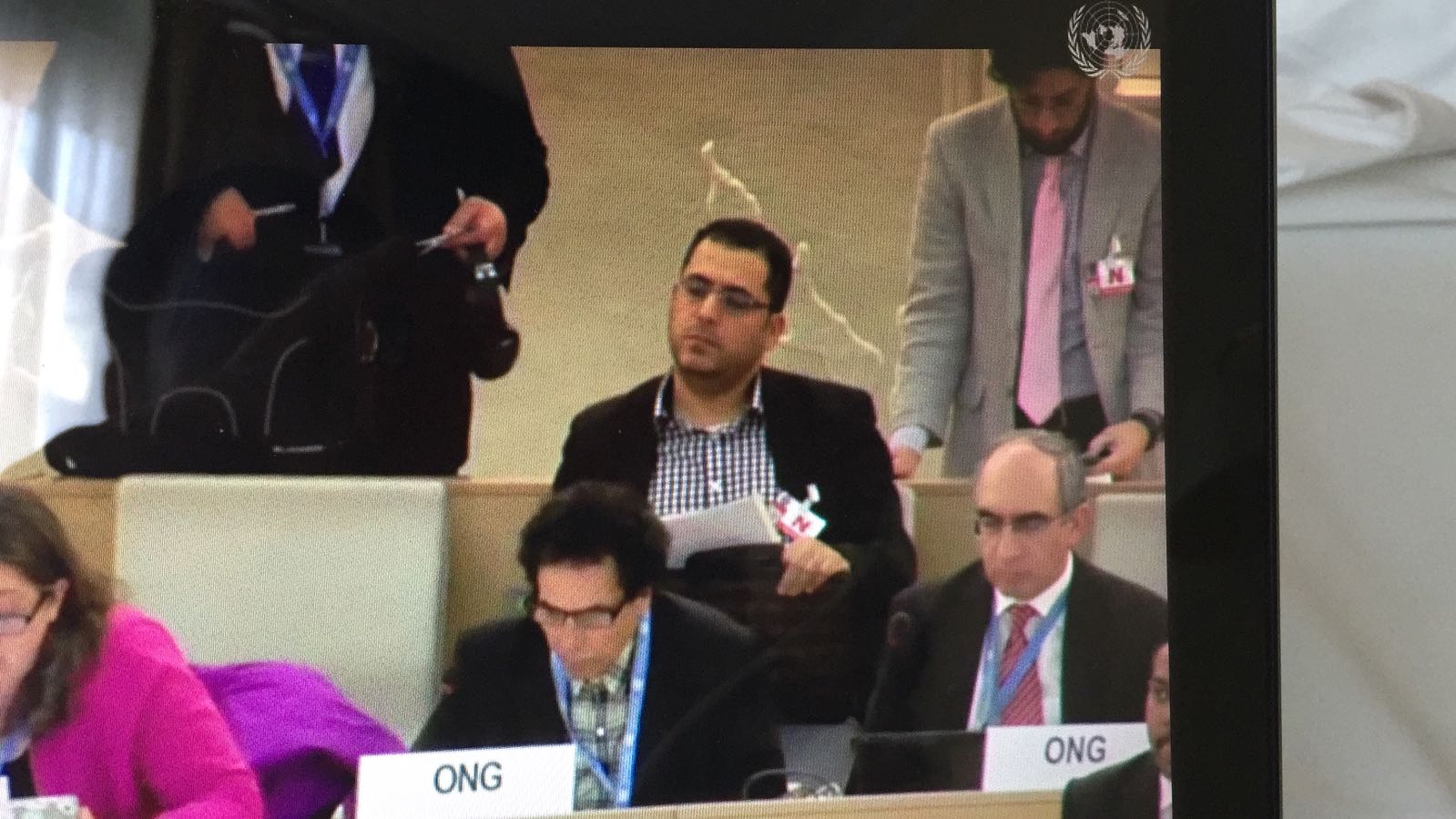On Tuesday 20 March 2018 during the 37th session of the Human Rights Council, Hany Alrayes delivered an oral intervention on behalf of ADHRB during the Item 8 General Debate on the topic of the Vienna Declaration and Programme of Action. In his intervention, Alrayes spoke about Bahrain’s use of torture and coerced confessions in leading to death sentences, mentioning the cases of Maher al-Khabbaz, Mohammad Ramadan and Husain Ali Moosa. Click here for a PDF of his intervention in English and click here for a PDF of his intervention in Arabic.
Mr. President,
ADHRB is particularly concerned by systematic violations of some states with regard to the violation of the VDPA’s enumerated right to be free from torture, especially when torture is used to coerce false confessions that lead to death sentences.
For example, in Bahrain, the government ended a 7-year de facto moratorium on the death penalty last year when it executed three victims of torture by firing squad. At the same time, the government re-empowered the country’s secret police force—the NSA—which appeared to immediately resume widespread torture.
2017 also saw a more than doubling of the death row population in Bahrain for arbitrary political cases, the vast majority of which have reported torture to coerce confessions which were used to convict them.
Before 2017, Bahrain’s death row contained 5 death row inmates including Maher al-Khabbaz, Mohammad Ramadan, and Husain Moosa.
In 2017, Bahrain passed 14 more death sentences, including seven cases handed down by a Bahraini Military Court in their first trial of civilians since the 2011 State of National Emergency.
We further regret that this trend has continued in 2018, with another 3 death sentences passed so far this year amid torture concerns.
We call on all states, including Bahrain, to abide by the VDPA’s absolute restriction on torture, especially in capital cases.
Thank you.





